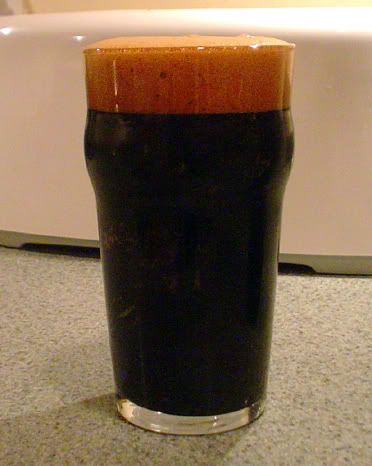(Stepping out of another thread to continue talking beer.)
I think at the heart of your question is another more important question: what defines a beer? In my opinion, the answer is yeast. I've brewed beers with the exact same ingredients, but used different yeasts and ended up with very different beers. By law, a German hefeweizen is required to be at least 50% malted wheat, with the remainder being pilsener malt. Free from those requirements, some American brewers are playing with the grains, but using the same yeast and are creating some very nice variations on hefeweizens.
American brewers are playing around with a lot of things in beer. I'd like to think they're attempting to define an American style of beer that isn't Bud/Miller/Coors/etc. (like the steam beers of San Francisco). Another country (Belgium) did quite a bit of experimenting over a century ago and now is considered to be home to some of the best beers in the world.
They do and they don't. There are some very good examples of classic hefeweizens brewed in America. Brooklyn brewing has one that comes to mind. There are also some great white ales coming out of America too, such as Allagash, Blue Moon, Ommegang, and others. There is a published set of style guidelines that beer judges use to judge beers in competition. I don't know if they're considered to be a worldwide standard, or just an attempt to categorize everything out there. Regardless, a lot of American brewers are stepping outside the style definitions and coming up with some great tasting beers.gastro said:I wouldn't mind that. How do the american wheat beers fit in that equation?
I think at the heart of your question is another more important question: what defines a beer? In my opinion, the answer is yeast. I've brewed beers with the exact same ingredients, but used different yeasts and ended up with very different beers. By law, a German hefeweizen is required to be at least 50% malted wheat, with the remainder being pilsener malt. Free from those requirements, some American brewers are playing with the grains, but using the same yeast and are creating some very nice variations on hefeweizens.
American brewers are playing around with a lot of things in beer. I'd like to think they're attempting to define an American style of beer that isn't Bud/Miller/Coors/etc. (like the steam beers of San Francisco). Another country (Belgium) did quite a bit of experimenting over a century ago and now is considered to be home to some of the best beers in the world.

